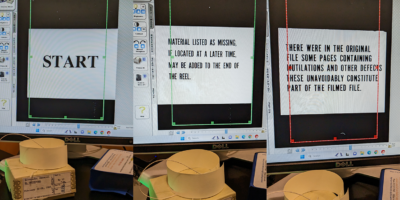By Jenn Polish
This post will focus on developing anti-racist and anti-ableist modes of assessment, and how things like contract grading can be a way for students to create their own forms of success in classrooms (instead of being held unfailingly to one standard model of “success” that doesn’t fit most students).
This Spring, my syllabus featured language borrowed from my mentor and advisor Carmen Kynard, whose syllabus for African American Literacies, Rhetorics, and Resistance includes this description of her assessment practices:, “[y]ou are not graded on the skills that you brought with you to the course, skills that are more representative of socioeconomic status [and experience with academic English] than knowledge.” This message resonated so strongly that one of my students, when writing their first paper, actually cited Carmen’s brilliant, ethically-infused words to help support their thinking on the racialization of language, power, and authority.
I begin this post with a meditation on the impact of Carmen’s words on my student(s) because, as ever, anti-racist and anti-ableist practices cannot be separated, cannot be treated as discrete actions and ethics. The long, violent history (including contemporary history, made yesterday, continuing today) of the pathologization of people of color continues to play out in our classrooms every day.
This dually ableist and racist violence manifests when we set assessment standards for students that reward educational privilege; racialize the meaning of “articulate”; assume that learning English as a second, third, or fourth language is a hindrance for an individual student to overcome rather than an asset for a classroom to help unlock. It manifests every time we do not actively integrate anti-ableist, anti-racist approaches into our assessment pedagogies.
Thinking through assessment as a process that occurs throughout the term rather than a discrete thing called “grading” can be helpful in assessing students in a way that acknowledges their unique contributions to the classroom rather than mandating cookie-cutter forms of participation, presence, and expression.
Because it’s important to recognize that we continually assess students: when they don’t raise their hands to speak; when they can’t attend class because they can’t get out of bed; when we make ableist assumptions about students’ “commitment” levels or “work ethics” because they sleep in class, come in later, submit assignments late, or miss the day of their presentation. And we assess students when their writing isn’t up to (white, middle-class, educationally privileged, neurotypical) “standard,” when they enter our classrooms with different assumptions about what it means to access, create, and share knowledge. In these assessments, we generally punish students who are dis/abled, and/or those whom the school and medical systems pathologize as such.
We assess students, too often negatively, instead of providing multiple entry points into our classroom from the beginning, and making it clear that students can participate in many different ways (for example, jotting notes and passing them to you after class instead of verbally partaking in a discussion). Opening up available forms of participation, presence, and expression in our classrooms makes it possible to positively assess students who are disadvantaged by traditional expectations of classroom participation.
So how do we do what Carmen Kynard suggests, and refuse to grade our students in a way that perpetuates structural inequities?
One way I’ve found is through being very explicit with students (as I’ve described in earlier posts) about what is important to me, and soliciting active feedback on what is important to them. Encouraging students to “talk/write back to” their assignments as well as to their syllabus helps students gain agency over their own learning process. My students do this by commenting directly on the syllabus and each assignment I give them, asking for clarification, and explaining what they’re excited by. I also have students do this by writing a low-stakes paragraph at the outset of each assignment journey, where they describe their expectations for themselves, their classmates, and me.
When we go through this process of navigating overall grading structures as a class in the beginning of term, we call it contract grading. Often regarded as having anti-racist assessment potential, contract grading allows each student to shape the course of their own learning; gives you a clear understanding of what their goals are and what is important to them to learn (as well as how they need to learn); and de-emphasizes a system of punitive or rewarding grades in favor of centralizing the learning process. Relatedly, grading via contract with your class allows you and your students to experience assessment as an ongoing process, rather than a high-stakes, anxiety-inducing, pathologizing, privilege-rewarding event that happens a few times per term.
As you’re deciding how to negotiate assessment as a process in each given term, here are some questions that might be helpful to ensure that you are actively engaging anti-ableist pedagogies in your assessment processes (some of these are repeated from the previous post in this series, but in the interest of generative redundancy, I’m multi-purposing them here):
- What types of learning styles and needs am I welcoming here? Which am I excluding? How can I open up the syllabus/expectations/assignment/assessment methods/lesson plan (etc.) to welcome more ways of learning and engaging?
- What were my learning objectives for this assignment? Is this form of assessment hostile to students who might have or need different objectives, or need to get there in a different way than the one I’ve required through this form of assessment?
- Is this syllabus/lesson/assignment/assessment method etc. inviting or excluding for students with extreme anxiety? With depression? With difficulty focusing? With PTSD? With varying ranges of social needs and comforts?
- What do I assume when my student tells me they’re sick? How might an ethos of trusting students when they say they cannot complete something on time or simply do not come to class alter my assessment methods and the diversity of ways that I offer students to engage in coursework?
- What assumptions do I make when a student sleeps in class? When a student is on their phone/computer in class? When a student gets up and leaves multiple times during class?
- Am I casually using words like “crazy” or expressions like “off their meds” in class, or not addressing it when students do? (I am including this as part of a post on assessment because when students shut down from inadvertently violent things we say, they are often punished for it under traditional models of assessment.)
- Do my attendance and participation requirements (including lesson planning and course content) automatically exclude or alienate students for whom interacting in particular ways is extremely burdensome? Am I proactive, rather than reactive, about providing multiple modes of engagement with the course?
- What are two things I’d like to commit to doing differently in my assessment practices moving forward?
Jenn Polish is a doctoral candidate in English at the Graduate Center and a Humanities Alliance Teaching Fellow. This is the fourth in a series of posts they are contributing to Visible Pedagogy.









Leave a Reply